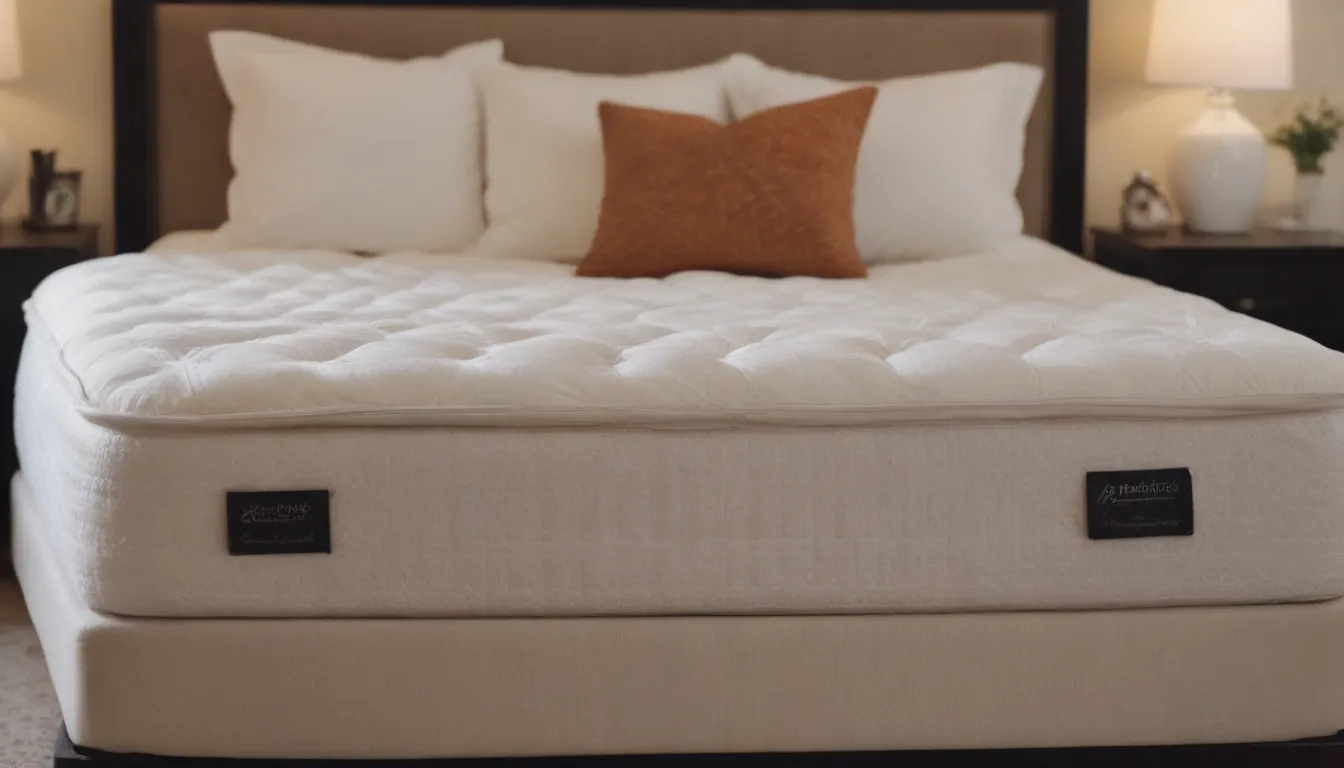Your Ultimate Guide to Choosing the Perfect Mattress

Introduction
A mattress is more than just a place to sleep; it is where you rejuvenate your body and mind after a long day. With a significant portion of your life spent on a mattress, it is essential to choose the right one. However, the process can be overwhelming due to the variety of options available in the market. This comprehensive guide will walk you through 15 different types of mattresses and help you choose the perfect one for your needs.
Understanding Different Types of Mattresses
Continuous Coil Innerspring Mattress
- Best for: Affordable, durable mattress.
- Continuous coil innerspring mattresses use interlinked single wire to form S-shaped coils.
- Pros:
- Least expensive option
- Sleeps “cool” and doesn’t trap heat
- Offers broad, even support
- Cons:
- Wear out faster than other types
- Can be noisy and transfer motion
Marshall (Pocketed) Coil
- Best for: Good support with minimal motion.
- Pocketed coils move independently, offering better support and motion isolation.
- Pros:
- Quieter and less motion transfer
- Better support for pressure points
- Cons:
- More expensive than standard innerspring
- Can be noisier than foam mattresses
Bonnell Coil Innersprings
- Best for: Durable affordability.
- Hourglass-shaped coils that have been around since the 1800s.
- Pros:
- Low cost
- Even support and “sleeps cool”
- Cons:
- May cause pressure-point discomfort
- Can be noisy, squeaky, and transfer motion
Offset Coil Innersprings
- Best for: Affordable, quiet mattress.
- Similar to Bonnell coils but less squeaky and conform better to the body.
- Pros:
- Affordable cost
- Quieter than other spring mattresses
- Cons:
- Can cause pressure-point discomfort
Polyurethane (Polyfoam)
- Best for: Durability, firm support.
- Foam mattresses made without metal springs, offering quiet sleep and less motion transfer.
- Pros:
- Good for pressure relief
- Least expensive type of foam mattress
- Cons:
- Can be hot to sleep on
- Weak edge support
Memory Foam
- Best for: Even support for sleepers with joint or muscle problems.
- Memory foam contours to the body and provides low motion transfer.
- Pros:
- Good contouring and support
- Good for allergy sufferers
- Cons:
- Can be hot to sleep on
- More expensive than polyurethane
Latex Foam
- Best for: Sleepers who prefer natural materials.
- Latex foam made from rubber tree sap offers more bounce and retains less heat.
- Pros:
- Uses natural materials
- Quiet to sleep on
- Cons:
- Expensive and heavy
- Poor contouring to body shape
Gel
- Best for: Cool, even support.
- Gel-infused memory foam helps regulate temperature better than traditional foam.
- Pros:
- Cooler than other foam types
- Quiet to sleep on
- Cons:
- Expensive and uses synthetic chemicals
Hybrid
- Best for: Firm support combined with comfort.
- Combines innerspring with foam layers for a balance of support and comfort.
- Pros:
- More bounce and resilience
- Good body temperature regulation
- Cons:
- Heavy and expensive
Pillowtop
- Best for: Durability combined with comfort.
- Adds a layer of padding on top of a standard mattress for extra comfort.
- Pros:
- Extremely comfortable
- Can be included on different mattress types
- Cons:
- Most expensive type of mattress
- Potential for sagging
Organic
- Best for: Sleepers with chemical sensitivities or environmental concerns.
- Made from organic materials and meets strict environmental standards.
- Pros:
- Environmentally friendly
- Good for allergy sufferers
- Cons:
- Can be expensive with limited options
Waterbed
- Best for: Adjusting temperature and support level.
- Waterbed mattresses offer customizable firmness and temperature settings.
- Pros:
- Pressure-free sleeping experience
- Adjustable temperature
- Cons:
- Heavy and prone to leaking
- Difficult to set up and move
Air Mattress
- Best for: Accommodating side-by-side sleepers with differing firmness needs.
- Quality air mattresses with foam layers offer adjustability and comfort for co-sleepers.
- Pros:
- Light and easy to move
- Infinitely adjustable
- Cons:
- Less durable than other types
- Prone to leaks
Adjustable Bed Mattress
- Best for: Users of adjustable-frame beds.
- Mattresses designed for adjustable beds offer flexibility and support.
- Pros:
- Flexible and good for orthopedic problems
- Several design options available
- Cons:
- May wear out quickly
- Can be expensive
Smart Mattress
- Best for: Side-by-side sleepers with different preferences.
- Smart mattresses offer infinite adjustability for personalized comfort.
- Pros:
- Offers infinite adjustability
- Suitable for sleepers with physical problems
- Cons:
- Requires electrical connection
- Can be very expensive
How to Choose the Perfect Mattress
Choosing the right mattress goes beyond just comfort. Consider factors such as cost, noise, bounce, motion transfer, temperature regulation, and material preferences. Keep in mind your sleeping position, budget, and how often you replace a mattress. A medium-firm or firm mattress with a pillowtop is a good balance of support and comfort for most individuals. If you have differing sleeping preferences, a smart mattress might be the ideal choice for you.
When shopping for a mattress, opt for retailers that offer a free trial period. This allows you to test the mattress in your home and ensure it meets your expectations. Understanding the return policy is crucial to avoid any surprises. Look for certifications like CertiPUR US or GREENGUARD GOLD to ensure the mattress is free from harmful chemicals or toxins.
In conclusion, selecting the right mattress is a personal decision that can significantly impact your sleep quality and overall well-being. Take your time to research and test different types of mattresses to find the one that meets your needs. Remember, a good night’s sleep is priceless, and investing in a quality mattress is investing in your health and happiness.
So, which type of mattress will you choose to transform your sleep experience?





